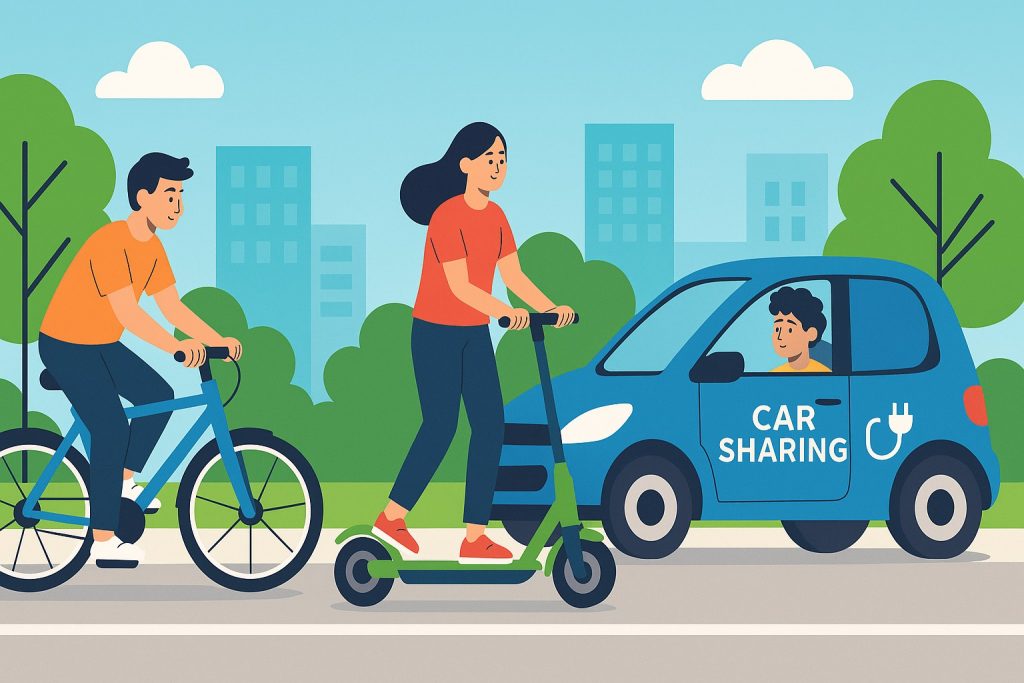As cities grow and climate change accelerates, the need for sustainable urban mobility has never been greater. Eco-friendly transportation options — like bicycles, electric scooters, and carsharing services — are helping reduce emissions, traffic, and dependence on fossil fuels.
But how effective are these alternatives — and what role do they play in building greener cities?
Bicycles: The Timeless Green Option
The bicycle remains one of the most sustainable modes of transportation. It produces zero emissions, reduces traffic congestion, and promotes public health through physical activity.
Cities that invest in bike lanes and public cycling programs, like Amsterdam, Copenhagen, and Portland, have seen cleaner air, lower noise pollution, and more active citizens.
Benefits of cycling:
- No emissions or fuel use
- Affordable and widely accessible
- Improves physical and mental health
- Reduces road wear and infrastructure costs
E-Scooters: Mobility on Demand
Electric scooters have surged in popularity in urban areas, offering a quick, convenient, and lightweight alternative to cars for short trips. They’re often part of shared mobility networks, where users rent scooters via smartphone apps.
However, sustainability depends on how they’re used and maintained. Poorly regulated programs and short scooter lifespans can reduce environmental benefits.
Best practices for sustainable use:
- Ride instead of driving, not walking
- Choose companies with eco-friendly maintenance and recycling policies
- Park responsibly and follow traffic rules
Carsharing: A Smarter Way to Drive
Carsharing allows users to rent vehicles by the minute, hour, or day — eliminating the need to own a car. Many services now offer electric or hybrid vehicles, reducing emissions and encouraging efficient vehicle use.
When one shared car replaces 8–13 private cars, fewer vehicles are produced, parked, and driven — reducing both carbon emissions and urban space consumption.
Advantages:
- Less car ownership = fewer emissions
- Encourages multimodal transport
- Saves money and parking space
- Easy access to electric vehicles
The Bigger Picture
Eco-friendly transportation is a combination of cleaner, smarter mobility options. Cities that support bike infrastructure, regulate scooter fleets, and encourage carsharing are building more livable, resilient environments.
Switching just a few trips per week from car to green alternatives can make a real difference — both for the planet and for your health.
Glossary
- Carsharing — the shared use of a vehicle fleet, typically managed via mobile apps
- E-scooter — a lightweight electric vehicle designed for short-distance travel
- Shared mobility — transportation services shared among users, including bikes, scooters, and cars


